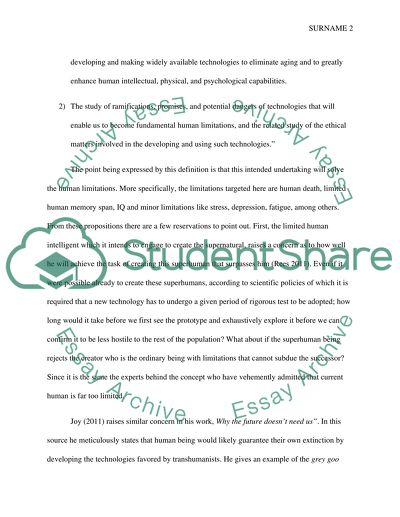Cite this document
(“Counterpoint/Augmentation of Transhumanism Essay”, n.d.)
Retrieved from https://studentshare.org/religion-and-theology/1436991-counterpoint-augmentation-of-transhumanism
Retrieved from https://studentshare.org/religion-and-theology/1436991-counterpoint-augmentation-of-transhumanism
(Counterpoint/Augmentation of Transhumanism Essay)
https://studentshare.org/religion-and-theology/1436991-counterpoint-augmentation-of-transhumanism.
https://studentshare.org/religion-and-theology/1436991-counterpoint-augmentation-of-transhumanism.
“Counterpoint/Augmentation of Transhumanism Essay”, n.d. https://studentshare.org/religion-and-theology/1436991-counterpoint-augmentation-of-transhumanism.


